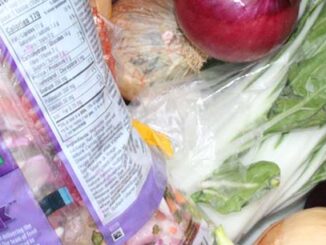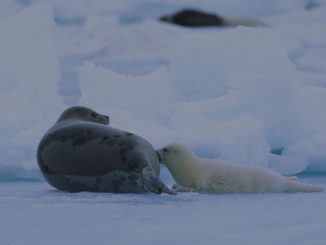Overfishing is not the main culprit in declining fish stocks, the changing environment is.
Kyle Greenham
Kicker
While quotas are slashed in hopes of increasing biomass, environmental factors are the main cause as shrimp and crab stocks continue to decline.
Harvesters across the province were surprised when earlier this year the country’s fishable biomass index experienced a further drop of 25 per cent, largely due to declines in the population of shrimp and crab.
Although this came as a shock to some, Dr. Pierre Pepin of the Department of Fisheries and Oceans says the changes are consistent with environmental trends of the past.
“In terms of both crab and shrimp, there’s a very strong relationship between environmental conditions and the productivity of those stocks,” Pepin said. “These temperature changes are largely cyclical. This is a natural variation with a component of climate change.”

Brad DeYoung is a professor in the department of physics and physical oceanography at Memorial University in St. John’s. He too sees environment, rather than overfishing, as playing the key role in the decline in these species.
“The general feeling has been that temperature has been a good marker for growth of some species,” DeYoung said. “For crab in particular there does seem to be a clear temperature relationship – in cold climates they do well, in warm they do not. For the past 15 years there’s been a warming period overall, but it can really change quite quickly.”
But temperature is not the only factor at play. Other components such as competition with other fish, harvesting, diseases and the global effects of climate change like the decline in oxygen and increased acidity in oceans are also having an impact.
“It’s a really tough problem because fishermen need to survive, they need money for their communities to survive.”
“All these things are mixed together, so it’s not surprising we don’t have a single answer,” said DeYoung. “When you see a change, it is likely due to more than one factor, even if one factor may dominate.”
With a struggling economy and increased fears of further cuts, in a province so dependent on the fishery, tensions are rising.
“When the stock goes down the share of the pie goes smaller, so it’s a bit of a challenge for harvesters to sustain themselves,” said Pepin.
DeYoung says a common problem with biomass data is the scepticism that arises when numbers are negative.
“We’ve struggled with overfishing because often negative information is discounted, and positive information is overreacted to,” said DeYoung. “There is now a present discussion surrounding shrimp that the shrimp are out there, but we are not finding them because they are not in the same places.”
However, DeYoung says this often comes from the misunderstanding that fishing, rather than environmental variations in the ocean, is what drives the decline in species like the shrimp.
“It’s a really tough problem because fishermen need to survive, they need money for their communities to survive,” said DeYoung. “But the fish don’t care about our need to make a living.”
In the midst of the uncertainty surrounding how these new numbers will affect the industry, DeYoung says communication and understanding are what is needed most right now.
“It’s not an easily fixable problem,” he said. “The bottom line lesson here is understanding the complexity of this issue and that we should be more careful than we have (been). That was the unlearned lesson from the collapse of cod.”



